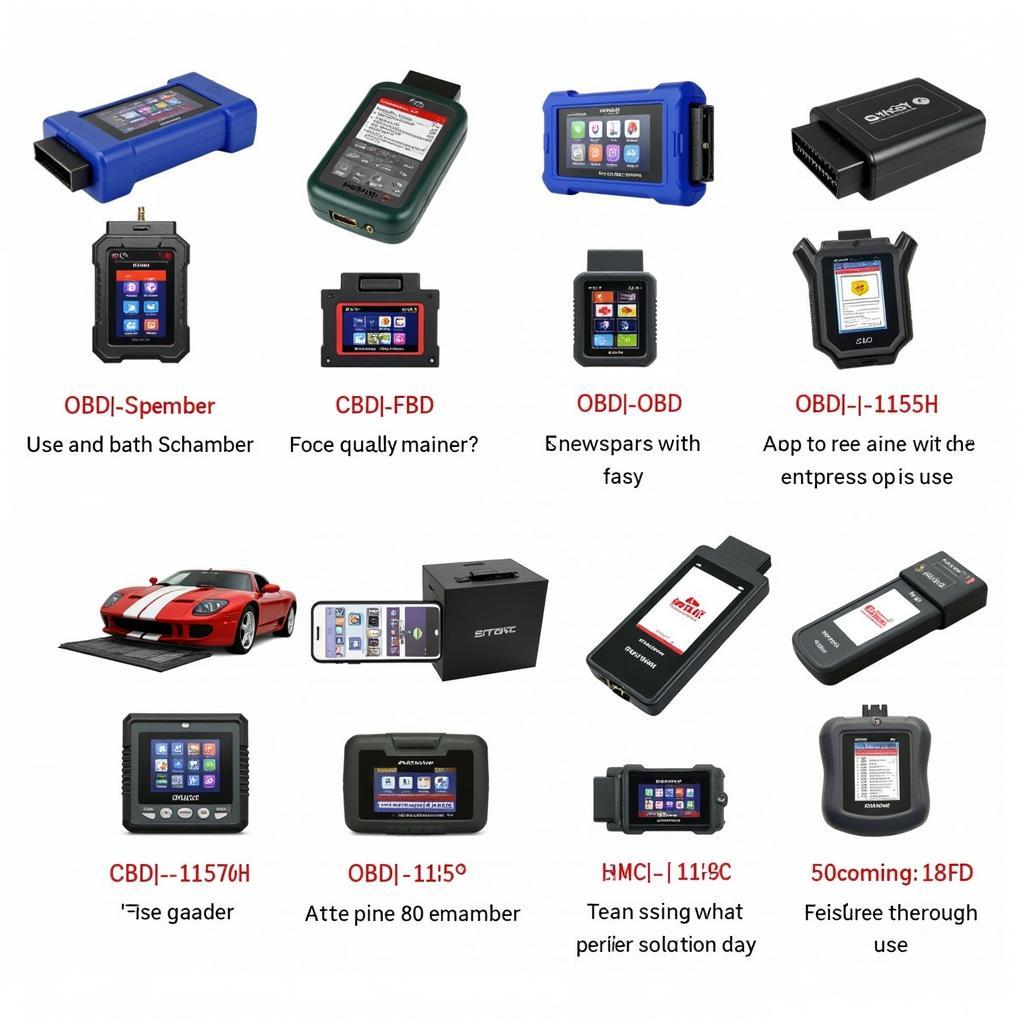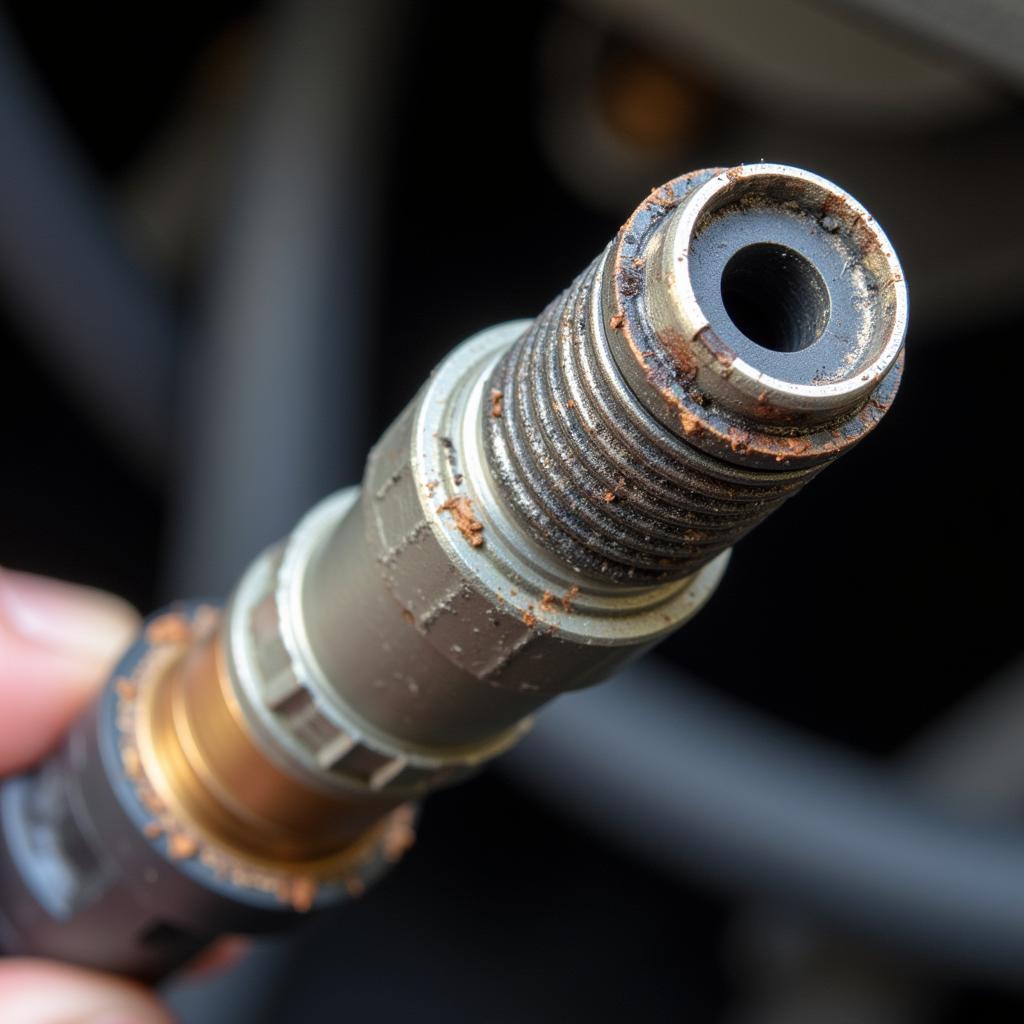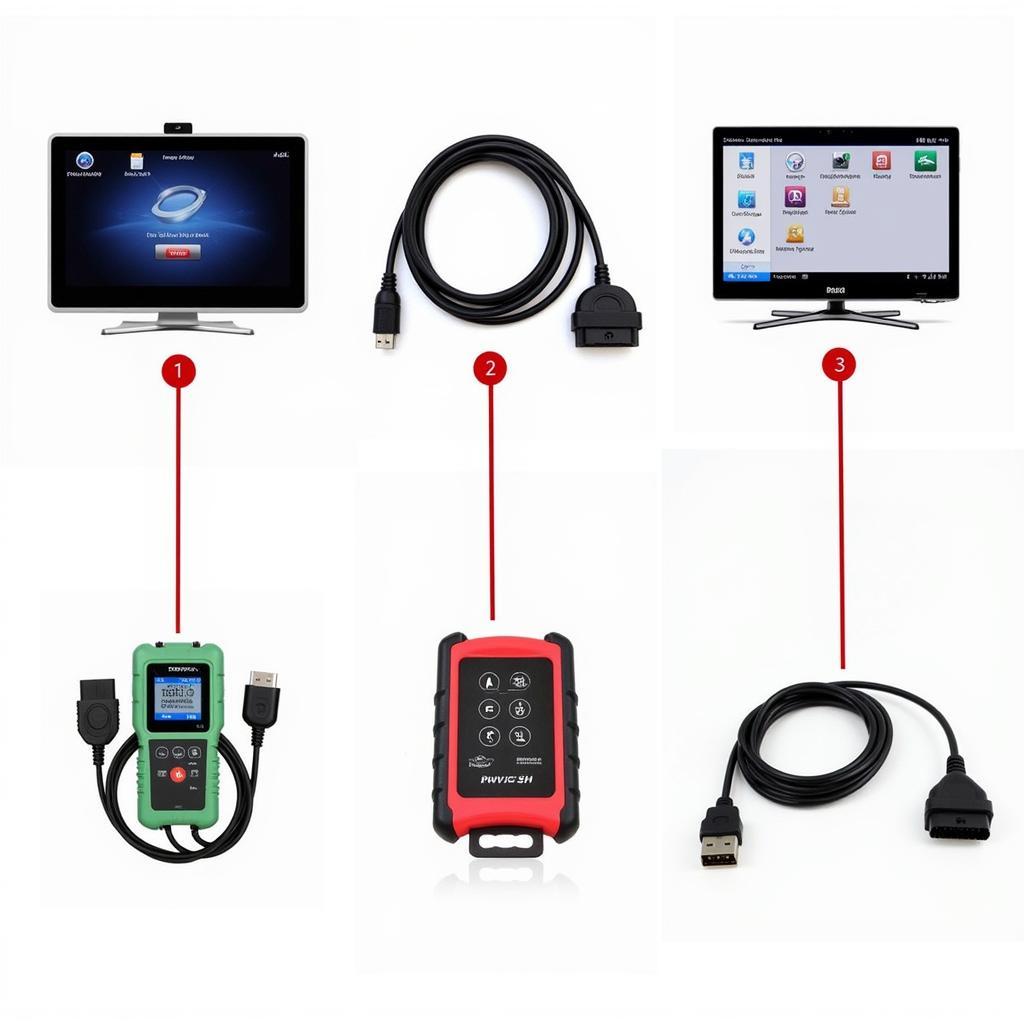In today’s world, cars are becoming increasingly sophisticated with advanced electronics controlling almost every aspect of their operation. When a problem arises, it’s no longer as simple as looking under the hood. This is where a car code reader scanner becomes indispensable, acting as a direct line of communication with your car’s computer system.
What Exactly is a Car Code Reader Scanner?
A Car Code Reader Scanner, also known as an OBD2 scanner, is a device that plugs into your car’s OBD2 port, usually located under the dashboard on the driver’s side. This port grants access to the vehicle’s onboard computer, allowing the scanner to retrieve diagnostic trouble codes (DTCs). These codes, represented by a combination of letters and numbers, pinpoint the specific area or system where the malfunction is occurring.
Why Should I Own a Car Code Reader Scanner?
Owning a car code reader scanner puts you in the driver’s seat when it comes to diagnosing car troubles.
Here are some compelling reasons why it’s a worthwhile investment:
- Early Detection: Identify minor issues before they escalate into major (and expensive) repairs.
- Cost Savings: Avoid unnecessary trips to the mechanic for a simple code reading.
- Peace of Mind: Gain a clear understanding of your car’s health and address issues promptly.
- Increased Control: Take charge of your car’s maintenance and repair decisions.
- Enhanced Resale Value: Demonstrate a well-maintained vehicle with a history of responsible diagnostics.
Types of Car Code Reader Scanners
Choosing the right car code reader scanner can be daunting given the wide array of options available. Here’s a breakdown of the common types:
1. Basic Code Readers
These entry-level scanners are budget-friendly and perfect for DIY enthusiasts seeking basic diagnostic information. They can read and clear basic engine-related trouble codes.
2. Advanced OBD2 Scanners
Offering more features than basic readers, advanced scanners provide live data streams, allowing you to monitor various engine parameters in real-time. They can also access manufacturer-specific codes for more detailed diagnostics.
3. Professional-Grade Scan Tools
Designed for professional mechanics, these high-end tools come packed with advanced features like bi-directional control, allowing you to interact with vehicle systems for testing and troubleshooting. They often include extensive code libraries and support for various vehicle makes and models.
How to Use a Car Code Reader Scanner
Using a car code reader scanner is a straightforward process, even for beginners.
Follow these simple steps:
- Locate the OBD2 Port: This port is typically found under the dashboard on the driver’s side.
- Connect the Scanner: Plug the scanner into the OBD2 port.
- Turn On the Ignition: Turn the key to the “on” position but don’t start the engine.
- Read the Codes: Follow the scanner’s instructions to retrieve the trouble codes.
- Interpret the Codes: Use the scanner’s built-in code library or an online resource to understand what each code means.
- Clear the Codes: Once you’ve addressed the underlying issue, use the scanner to clear the codes from the vehicle’s computer.
What to Do When You Get a Code
Finding a trouble code doesn’t necessarily mean a major repair is imminent.
- Research the Code: Start by researching the specific code online or referring to your car’s repair manual.
- Check for Simple Fixes: Some codes can be triggered by loose gas caps, faulty sensors, or even a dying battery.
- Seek Professional Help: If you’re unsure about the diagnosis or repair, consult a qualified mechanic.
Choosing the Right Scanner for Your Needs
The best car code reader scanner for you depends on your specific needs and budget.
- DIY Enthusiasts: A basic code reader or an advanced OBD2 scanner will suffice for most routine maintenance and minor repairs.
- Professional Mechanics: A professional-grade scan tool is essential for in-depth diagnostics, bi-directional control, and advanced troubleshooting.
- Vehicle Specific Needs: Some scanners are tailored for specific car makes or models, offering enhanced compatibility and features.
Investing in a Universal All Car Fault Reader Code Scanner Diagnostic Tool
For those seeking a versatile and comprehensive solution, a universal all-car fault reader code scanner diagnostic tool is an excellent choice. These scanners offer broad compatibility with various vehicle makes and models, covering a wide range of diagnostic needs.
The Future of Car Diagnostics
As cars continue to evolve, so too will car diagnostic tools. Expect to see more sophisticated scanners with advanced features like cloud connectivity, predictive diagnostics, and augmented reality-assisted repairs.
“The ability to accurately diagnose car problems is becoming increasingly crucial,” says John Smith, a seasoned automotive engineer at ScanToolUS. “Car code reader scanners empower car owners with the knowledge and tools to take control of their vehicles’ maintenance, saving them time and money in the long run.”
Conclusion
A car code reader scanner is no longer a luxury but a necessity for modern car owners. It’s an invaluable tool that provides insights into your vehicle’s health, empowers you to make informed repair decisions, and potentially saves you from costly headaches down the road.
If you have any questions or need assistance finding the right car code reader scanner for your needs, don’t hesitate to contact the experts at ScanToolUS at +1 (641) 206-8880 or visit our office at 1615 S Laramie Ave, Cicero, IL 60804, USA.
Frequently Asked Questions (FAQs)
1. Will a car code reader scanner work on any car?
Most modern cars (manufactured after 1996) are equipped with the OBD2 standard, ensuring compatibility with most scanners. However, it’s essential to check the scanner’s specifications to ensure it supports your specific car make and model.
2. Can I clear the codes myself?
Yes, most car code reader scanners allow you to clear the trouble codes once you’ve addressed the underlying issue. However, it’s crucial to understand the cause of the code before clearing it, as this information is essential for proper diagnosis and repair.
3. Do I need a professional mechanic to use a car code reader scanner?
While basic code readers are user-friendly and designed for DIY enthusiasts, more advanced scanners might require some technical knowledge. If you’re unsure about using a scanner or interpreting the codes, it’s always best to consult a qualified mechanic.
4. How often should I use a car code reader scanner?
It’s a good practice to scan your car for codes periodically, even if you haven’t noticed any issues. This allows for early detection of potential problems and preventive maintenance.
5. Are there any risks associated with using a car code reader scanner?
Using a car code reader scanner is generally safe. However, it’s essential to purchase from reputable brands and avoid cheap knock-offs, as these might not function correctly or could potentially damage your car’s computer system.



